 | TODAY IN SCIENCE HISTORY
NEWSLETTER - 19 JUNE |
 On 19 Jun 1906, Ernst Chain was born, German-born British biochemist who shared the 1945 Nobel Prize for Physiology or Medicine with Sir Alexander Fleming and Howard Walter Florey (later Baron Florey) for their work on penicillin.Today's Science Store pick is: The Mold in Dr. Florey's Coat: The Story of the Penicillin Miracle, by Eric Lax. Although Nobel laureate Alexander Fleming is well-known for his observation of the antibiotic qualities of a penicillium mold, it was the relatively little-known work of Florey and Chain that made the vital contribution of solving immense technical problems of the large-scale production of penicillin. The curious title refers to the way in which these scientists, working in Oxford during WW II, planned in the event of invasion to destroy all their work to prevent it from falling into enemy hands, yet rubbed their jackets with pencillium spores to carry the secret with them if they fled. This piece of medical research history is a fascinating, informative and important story, making the book one that everybody will find to be rewarding reading.Price $ 17.00, save 35% New $11.06. Also available Used from $0.01 (as of time of writing). On 19 Jun 1906, Ernst Chain was born, German-born British biochemist who shared the 1945 Nobel Prize for Physiology or Medicine with Sir Alexander Fleming and Howard Walter Florey (later Baron Florey) for their work on penicillin.Today's Science Store pick is: The Mold in Dr. Florey's Coat: The Story of the Penicillin Miracle, by Eric Lax. Although Nobel laureate Alexander Fleming is well-known for his observation of the antibiotic qualities of a penicillium mold, it was the relatively little-known work of Florey and Chain that made the vital contribution of solving immense technical problems of the large-scale production of penicillin. The curious title refers to the way in which these scientists, working in Oxford during WW II, planned in the event of invasion to destroy all their work to prevent it from falling into enemy hands, yet rubbed their jackets with pencillium spores to carry the secret with them if they fled. This piece of medical research history is a fascinating, informative and important story, making the book one that everybody will find to be rewarding reading.Price $ 17.00, save 35% New $11.06. Also available Used from $0.01 (as of time of writing).
Yesterday's pick: Song and Garden Birds of North America, by Alexander Wetmore.
For picks from earlier newsletters, see the Today in Science Science Store home page. | |
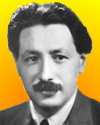 | "Science, as long as it limits itself to the descriptive study of the laws of nature, has no moral or ethical quality and this applies to the physical as well as the biological sciences." - Sir Ernst Boris Chain, German-English biochemist (born 19 Jun 1906)  |
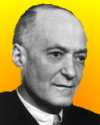 | "A common fallacy in much of the adverse criticism to which science is subjected today is that it claims certainty, infallibility and complete emotional objectivity. It would be more nearly true to say that it is based upon wonder, adventure and hope." - Sir Cyril Norman Hinshelwood, English physical chemist (born 19 Jun 1897)  |
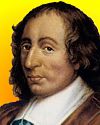 | "We are generally more effectually persuaded by reasons we have ourselves discovered than by those which have occurred to others." - Blaise Pascal, French mathematician and physicist (born 19 Jun 1623)  |
| Before you look at today's web page, see if you can answer some of these questions about the events that happened on this day. Some of the names are very familiar. Others will likely stump you. Tickle your curiosity with these questions, then check your answers on today's web page. |
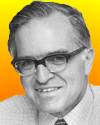 |  On 19 Jun 1922, the son of a famous Nobel-winning Danish physicist was born. They both contributed to the building of the atomic bomb during WW II. As his father had done before him, the son won a Nobel Prize for Physics in 1975 (shared with Ben R. Mottelson and James Rainwater "for the discovery of the connection between collective motion and particle motion in atomic nuclei and the development of the theory of the structure of the atomic nucleus based on this connection.") On 19 Jun 1922, the son of a famous Nobel-winning Danish physicist was born. They both contributed to the building of the atomic bomb during WW II. As his father had done before him, the son won a Nobel Prize for Physics in 1975 (shared with Ben R. Mottelson and James Rainwater "for the discovery of the connection between collective motion and particle motion in atomic nuclei and the development of the theory of the structure of the atomic nucleus based on this connection.")
 What is the family name of these scientists? |
 |  On 19 Jun 1623, Blaise Pascal was born, a French mathematician, physicist and child prodigy. He laid the foundation for the modern theory of probabilities. He invented the syringe and hydraulic press. He is best known for his work in hydrodynamics. He died at the young age of 39 having been sickly and physically weak through life. Autopsy showed he had been born with a deformed skull. On 19 Jun 1623, Blaise Pascal was born, a French mathematician, physicist and child prodigy. He laid the foundation for the modern theory of probabilities. He invented the syringe and hydraulic press. He is best known for his work in hydrodynamics. He died at the young age of 39 having been sickly and physically weak through life. Autopsy showed he had been born with a deformed skull.
 What physical quantity has a unit named for him, and his work in that field? |
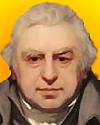 |  Sir Joseph Banks (1743-1820) was a British explorer and naturalist, known for his promotion of science. As an independent naturalist, Banks participated in a voyage to Newfoundland and Labrador in 1767. He successfully lobbied to be included on what was to be James Cook's first great voyage of discovery, on board the Endeavour (1768-71). King George III appointed Banks adviser to the Royal Botanic Gardens at Kew. Banks established his London home as a scientific base (1776) with natural history collections he made freely available to researchers. Sir Joseph Banks (1743-1820) was a British explorer and naturalist, known for his promotion of science. As an independent naturalist, Banks participated in a voyage to Newfoundland and Labrador in 1767. He successfully lobbied to be included on what was to be James Cook's first great voyage of discovery, on board the Endeavour (1768-71). King George III appointed Banks adviser to the Royal Botanic Gardens at Kew. Banks established his London home as a scientific base (1776) with natural history collections he made freely available to researchers.  He was also a long-time president of which British scientific society? He was also a long-time president of which British scientific society? |
|  In 240 BC, Eratosthenes, a Greek astronomer and mathematician. As the director of the great library of Alexandria, he read in a papyrus book that in Syene, approaching noon on the summer solstice, the longest day of the year, shadows of temple columns grew shorter. At noon, they were gone. The sun was directly overhead. However, a stick in Alexandria, far to the north, could cast a pronounced shadow. In 240 BC, Eratosthenes, a Greek astronomer and mathematician. As the director of the great library of Alexandria, he read in a papyrus book that in Syene, approaching noon on the summer solstice, the longest day of the year, shadows of temple columns grew shorter. At noon, they were gone. The sun was directly overhead. However, a stick in Alexandria, far to the north, could cast a pronounced shadow.
 What significant measurement was he able to make by taking measurements, and application of geometry, based on this idea? |
|  On 19 Jun of a certain year, the Trans-Alaska Pipeline began carrying oil from the Arctic Ocean to Prince William Sound. On 19 Jun of a certain year, the Trans-Alaska Pipeline began carrying oil from the Arctic Ocean to Prince William Sound.
 In what decade did this take place? |
|  On 19 Jun 1849, a U.S. patent was granted to C. Austin of Concord, N.H. for a small reed organ, with treadle-operated bellows to draw air through the reeds. On 19 Jun 1849, a U.S. patent was granted to C. Austin of Concord, N.H. for a small reed organ, with treadle-operated bellows to draw air through the reeds.
 What is the name of this instrument? |
When you have your answers ready to all the questions above, you'll find all the information to check them, and more, on the June 19 web page of Today in Science History. Or, try this link first for just the brief answers.
Fast answers for the previous newsletter for June 18: quasars; Alphonse Laveran; ionosphere; Africa; fewer parts, simpler construction, safer, more reliable, and greater power; the decade including the year 1981
|
 If you enjoy this newsletter, the website, or wish to offer encouragement or ideas, please send feedback by using your mail reader Reply button. If you enjoy this newsletter, the website, or wish to offer encouragement or ideas, please send feedback by using your mail reader Reply button. |
--
If you do not want to receive any more newsletters,
Unsubscribe To update your preferences and to unsubscribe visit
this link 






 On 19 Jun 1922, the son of a famous Nobel-winning Danish physicist was born. They both contributed to the building of the atomic bomb during WW II. As his father had done before him, the son won a Nobel Prize for Physics in 1975 (shared with Ben R. Mottelson and James Rainwater "for the discovery of the connection between collective motion and particle motion in atomic nuclei and the development of the theory of the structure of the atomic nucleus based on this connection.")
On 19 Jun 1922, the son of a famous Nobel-winning Danish physicist was born. They both contributed to the building of the atomic bomb during WW II. As his father had done before him, the son won a Nobel Prize for Physics in 1975 (shared with Ben R. Mottelson and James Rainwater "for the discovery of the connection between collective motion and particle motion in atomic nuclei and the development of the theory of the structure of the atomic nucleus based on this connection.")  What is the family name of these scientists?
What is the family name of these scientists?
 On 19 Jun 1623, Blaise Pascal was born, a French mathematician, physicist and child prodigy. He laid the foundation for the modern theory of probabilities. He invented the syringe and hydraulic press. He is best known for his work in hydrodynamics. He died at the young age of 39 having been sickly and physically weak through life. Autopsy showed he had been born with a deformed skull.
On 19 Jun 1623, Blaise Pascal was born, a French mathematician, physicist and child prodigy. He laid the foundation for the modern theory of probabilities. He invented the syringe and hydraulic press. He is best known for his work in hydrodynamics. He died at the young age of 39 having been sickly and physically weak through life. Autopsy showed he had been born with a deformed skull. What physical quantity has a unit named for him, and his work in that field?
What physical quantity has a unit named for him, and his work in that field?
 Sir Joseph Banks (1743-1820) was a British explorer and naturalist, known for his promotion of science. As an independent naturalist, Banks participated in a voyage to Newfoundland and Labrador in 1767. He successfully lobbied to be included on what was to be James Cook's first great voyage of discovery, on board the Endeavour (1768-71). King George III appointed Banks adviser to the Royal Botanic Gardens at Kew. Banks established his London home as a scientific base (1776) with natural history collections he made freely available to researchers.
Sir Joseph Banks (1743-1820) was a British explorer and naturalist, known for his promotion of science. As an independent naturalist, Banks participated in a voyage to Newfoundland and Labrador in 1767. He successfully lobbied to be included on what was to be James Cook's first great voyage of discovery, on board the Endeavour (1768-71). King George III appointed Banks adviser to the Royal Botanic Gardens at Kew. Banks established his London home as a scientific base (1776) with natural history collections he made freely available to researchers.  He was also a long-time president of which British scientific society?
He was also a long-time president of which British scientific society?  In 240 BC, Eratosthenes, a Greek astronomer and mathematician. As the director of the great library of Alexandria, he read in a papyrus book that in Syene, approaching noon on the summer solstice, the longest day of the year, shadows of temple columns grew shorter. At noon, they were gone. The sun was directly overhead. However, a stick in Alexandria, far to the north, could cast a pronounced shadow.
In 240 BC, Eratosthenes, a Greek astronomer and mathematician. As the director of the great library of Alexandria, he read in a papyrus book that in Syene, approaching noon on the summer solstice, the longest day of the year, shadows of temple columns grew shorter. At noon, they were gone. The sun was directly overhead. However, a stick in Alexandria, far to the north, could cast a pronounced shadow. What significant measurement was he able to make by taking measurements, and application of geometry, based on this idea?
What significant measurement was he able to make by taking measurements, and application of geometry, based on this idea? On 19 Jun of a certain year, the Trans-Alaska Pipeline began carrying oil from the Arctic Ocean to Prince William Sound.
On 19 Jun of a certain year, the Trans-Alaska Pipeline began carrying oil from the Arctic Ocean to Prince William Sound. In what decade did this take place?
In what decade did this take place? On 19 Jun 1849, a U.S. patent was granted to C. Austin of Concord, N.H. for a small reed organ, with treadle-operated bellows to draw air through the reeds.
On 19 Jun 1849, a U.S. patent was granted to C. Austin of Concord, N.H. for a small reed organ, with treadle-operated bellows to draw air through the reeds. What is the name of this instrument?
What is the name of this instrument? If you enjoy this newsletter, the website, or wish to offer encouragement or ideas, please send feedback by using your mail reader Reply button.
If you enjoy this newsletter, the website, or wish to offer encouragement or ideas, please send feedback by using your mail reader Reply button. 

Δεν υπάρχουν σχόλια:
Δημοσίευση σχολίου